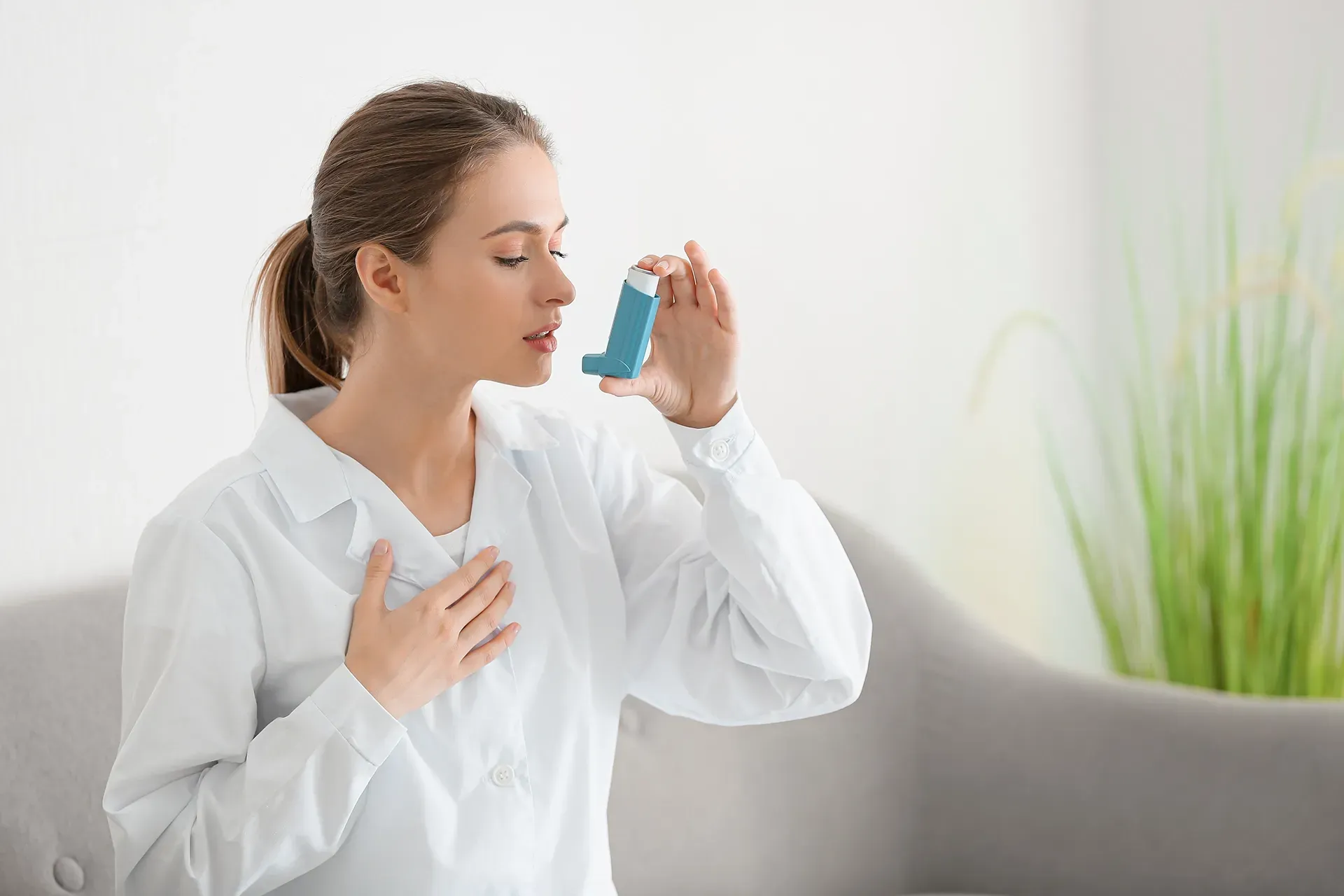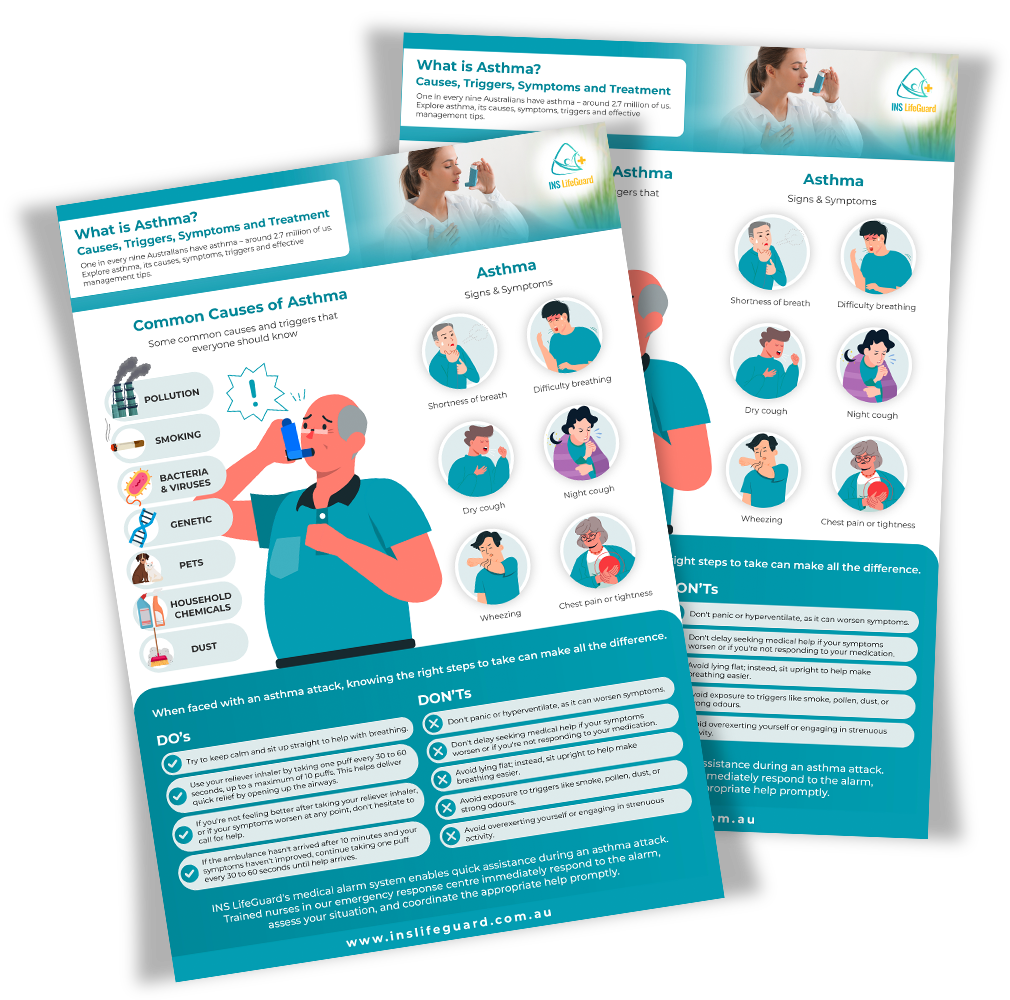INS LifeGuard
Understanding Asthma: Causes, Symptoms and Management

Do you or someone you know suffer from asthma? It's a common condition that affects millions of people worldwide, with approximately 300 million individuals currently living with the condition globally. Shockingly, its prevalence is on the rise, increasing by 50% every ten years.
In Australia, the impact of asthma is profound, 1 in 9 people in Australia have asthma. This represents a significant 2.5% of the total disease burden and a staggering 35% of the total burden of respiratory conditions in 2023.
In this blog post, we'll break down what asthma is, its symptoms, causes, triggers, and some practical tips for managing it effectively.
What is Asthma?
Asthma is a chronic respiratory condition that causes inflammation and narrowing of the airways, making it difficult to breathe. It can range from mild to severe and can affect people of all ages. Common symptoms include coughing, wheezing, shortness of breath, and chest tightness.
What Causes Asthma?
The exact cause of asthma is not fully understood, but it is believed to involve a combination of genetic and environmental factors. Certain triggers can worsen asthma symptoms, including:
- Allergens such as pollen, dust mites, mould, and pet dander
- Respiratory infections like the common cold
- Irritants like smoke, strong odours, and air pollution
- Physical activity or exercise
- Weather changes, such as cold air or humidity
How to Manage Asthma Attack?
While there is no cure for asthma, it can be effectively managed with proper treatment and lifestyle adjustments. Here are some tips to help you better manage your asthma:
1. Follow your treatment plan:
Take your medications as prescribed by your doctor, including long-term control medications and quick-relief inhalers for flare-ups.
2. Identify and avoid triggers:
Pay attention to what triggers your asthma symptoms and take steps to avoid or minimise exposure to them.
3. Create an asthma action plan:
Work with your healthcare provider to develop a personalised asthma action plan that outlines steps to take in case of worsening symptoms or an asthma attack.
4. Monitor your breathing:
Keep track of your symptoms and peak flow readings regularly to detect any changes early and adjust your treatment as needed.
5. Maintain a healthy lifestyle:
Eat a balanced diet, exercise regularly, avoid smoking, and manage stress to keep your asthma under control.
Managing an Asthma Attack
Experiencing an asthma attack can be frightening and overwhelming. It's essential to know how to respond effectively to manage symptoms and ensure safety. Download this essential guide now to equip yourself with vital information on managing asthma attacks.

When to Seek Help?
It's essential to seek medical help if you experience severe asthma symptoms, such as difficulty breathing, wheezing that doesn't improve with medication or chest pain. Untreated asthma can lead to serious complications and interfere with daily activities.
In managing asthma, it's crucial to have strategies in place for unforeseen attacks. That's where a reliable medical alarm system like INS LifeGuard can make all the difference.
In the event of an asthma attack, our medical alarm system allows individuals to swiftly summon help with a simple push of a button. When the alarm is triggered, a trained nurse in our emergency response centre immediately responds and accesses your medical history, ensuring a swift and informed response. Depending on your situation, we'll contact your family, carer, or emergency services, ensuring help is on the way.
Opt for our professional TeleHealth service for 24/7 monitoring by registered nurses at INS LifeGuard, who can also share your medical records with your GP or specialist.
Takeaway
Having asthma doesn't mean you have to sit on the sidelines. With proper management, many people with asthma lead active and fulfilling lives. With the right care and support, you can keep it under control.
To learn more about our products, get in touch with us at
1800 636 040 or visit our
website.

About
INS LifeGuard is the only 24/7 nurse on-call personal and medical monitoring in Australia. We provide monitoring technology for both in the home and on the go and can also monitor other provider's equipment. Our services are suitable for anyone wanting support to stay independent such as the elderly, those with medical conditions and disabilities plus enhancing safety and security for lone workers.













